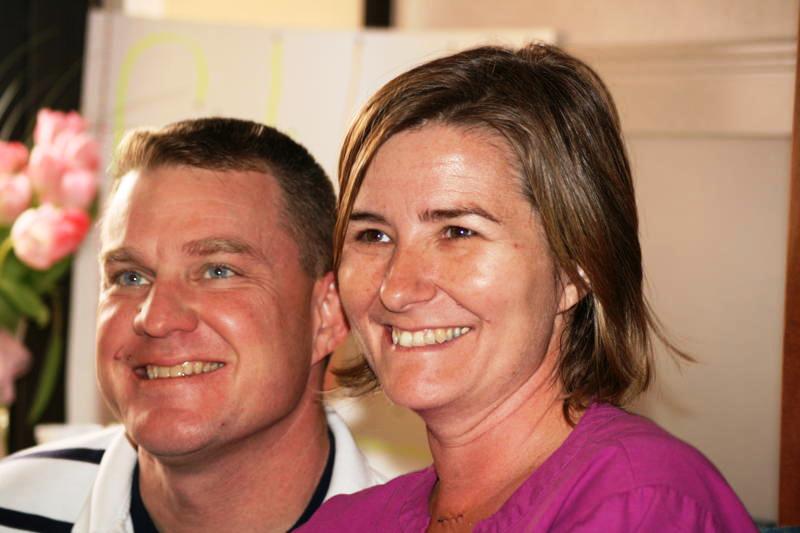In common parlance, the word compassion is taken to mean exceptional niceness, or an emotional state of unusual sympathy. That’s true, I suppose, but it shortchanges the real meaning of the word. Compassion comes from the Latin roots meaning, “to suffer with.” To have true compassion, then, is to in some sense share the suffering of another. And that implies not just having the right feelings, but doing the right actions. Yale surgeon and professor Sherwin Nuland, M.D., is not a religious man, but in an appearance on Krista Tippett’s excellent public radio program “Speaking of Faith,” Dr. Nuland talked about how suffering calls forth love. Excerpt from the interview, on what humankind does with the knowledge that pain and suffering is a universal part of the human condition:
Dr. Nuland: I think we make use of that knowledge to perpetuate love. There is a book that I wrote called Lost in America, and there is a quotation in that book. It’s the epigraph of that book, and it’s attributed to Philo. Nobody who’s a Philo expert has been able to find it for me, and I certainly can’t find it. “Be kind, for everyone you meet is carrying a great burden.” Well, that’s the philosopher’s stone. When you recognize that pain and response to pain is a universal thing, it helps explain so many things about others, just as it explains so much about yourself. It teaches you forbearance. It teaches you a moderation in your responses to other people’s behavior. It teaches you a sort of understanding. It essentially tells you what everybody needs. You know what everybody needs? You want to put it in a single word? Everybody needs to be understood. And out of that comes every form of love. If someone truly feels that you understand them, an awful lot of neurotic behavior just disappears. Disappears on your part, disappears on their part. So if you’re talking about what motivates this world to continue existing as a community, you’ve got to talk about love. And you can’t talk about — oh, I’m going to get into hot water for this, you can’t talk about this phony concept of love that so many of the religious throw around based on God’s love. You’ve got to think about this in terms of human biology, including emotional biology. Ms. Tippett: Right. I mean, love is such a watered down wishy-washy word in our culture. Dr. Nuland: Well, sure. It’s misused, it’s bastardized. Ms. Tippett: Yeah. Dr. Nuland: And it becomes somebody’s slogan. Ms. Tippett: But, I mean, I’m thinking when you talk about — if you approach everyone, as you say — I love this epigraph, “Be kind, for everyone you meet is fighting a great battle.” Dr. Nuland: That’s it, fighting a great battle. Ms. Tippett: Is fighting a great battle. Dr. Nuland: Yes, that’s even better. Ms. Tippett: I mean, that — but, you know, what that also engenders, the qualities you spoke about: patience, hospitality, compassion — virtues that are at the heart of all the great religious traditions, right? Dr. Nuland: Of course. There’s the universal again. And my argument is it comes out of your biology because on some level we understand all of this. We put it into religious forms. It’s almost like an excuse to deny our biology. We put it into pithy, sententious aphorisms, but it’s really coming out of our deepest physiological nature.
Read the entire transcript or listen to the interview here. Or, buy Krista’s new collection of her interviews, “Einstein’s God: Conversations About Science and the Human Spirit.” It’s a wonderful book, and I’m pleased to note that at least some of these radio interviews were supported by a grant from the John Templeton Foundation. A note about Dr. Nuland’s cracking on the bastardization of the word “love” in our culture. He’s onto something. St. Paul was surely right when he wrote:
Love is patient, love is kind. It does not envy, it does not boast, it is not proud. It is not rude, it is not self-seeking, it is not easily angered, it keeps no record of wrongs. Love does not delight in evil but rejoices with the truth. It always protects, always trusts, always hopes, always perseveres. Love never fails.
But this underscores Dr. Nuland’s point: love is hard. One reason so many of us who know my sister are marveling over how she’s dealing with her cancer, and are rushing to help her with whatever active love we can muster, is because we recognize that she has, in her life, embodied St. Paul’s ideal of love as patient, kind, hopeful, protecting and persevering. Maybe we didn’t notice this, or at least didn’t give this love its due, because her love has never boasted. But now we see it — OK, now I see it — and it’s life-changing. So much of what I call love in my own life has been a matter of tendering the emotions appropriate to love. But that’s easy. Love, real love, demands suffering with. I’m thinking about the people who came to visit Ruthie the other day, who annoyed me with their insensitivity. Ruthie gently chastised me over that, and talked about how they have suffered so much, and what their suffering had to do with the way they behaved. She was willing to be patient and kind to them because she could imagine that they have been fighting and do fight a great battle. That’s love, the kind that never fails. And the only way to it is humility. UPDATE: Or, to state this entire blog entry in musical terms, here’s an REM song I never have much liked because I thought it too sentimental. But boy, does it mean a lot to me right now:

